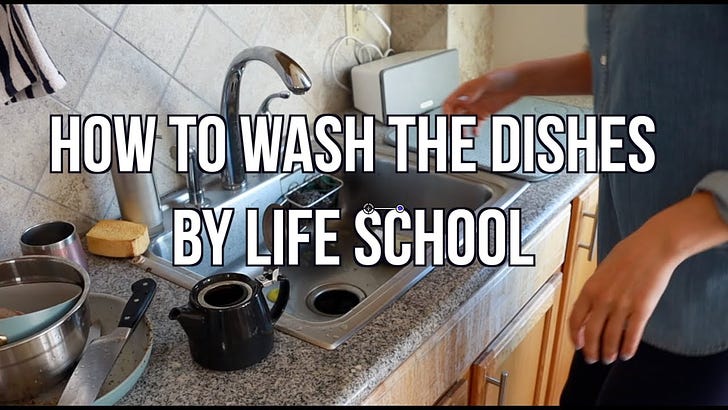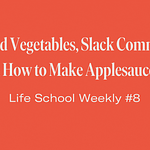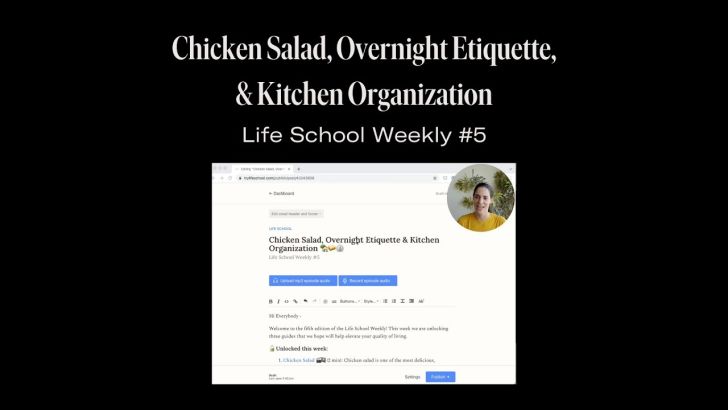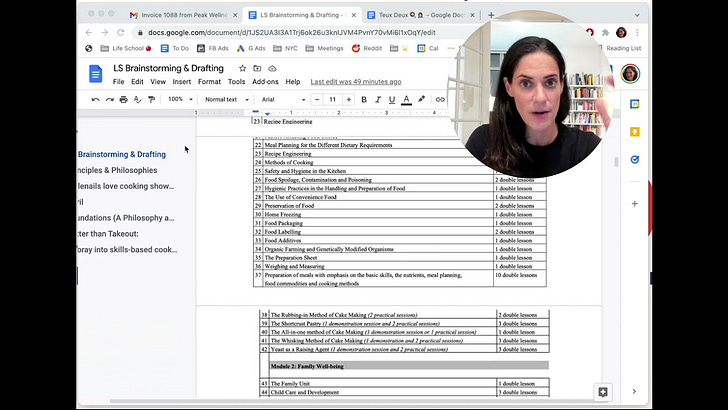Today’s Lesson is 568 words, a 2 min 16 sec reading time. Sign up here.
📽 Link to the music video
📍 Introduction
With a plan of attack, you can blast through that tower of gunk before you know it. Sparkling sinks make for happy people, so give these tips & tricks a try. 🧼💪
🧹 Required Gear:
Dish soap
Sponge or scrubbie
Drying towel, mat, or rack
Gloves (recommended)
🔢 Instructions:
Rinse off/wash clean-ish items first
Rinse dirty dishes with hot water
Soak a sponge with warm water & a few drops of dish soap
Turn off faucet (to save water)
Attack the pile of dishes, loosely grouping items by type, working from cleanest to dirtiest
Rinse or spray down soapy dishes
Air dry on a rack, mat, or towel
(Extra credit) Wipe down sink
📝 Notes, Tips, Tricks:
Prepping to Wash
Scrape & rinse your dirty dishes as soon as possible, even if you plan to wash them later. Without rinsing, residue dries & sticks.
Pre-soak large pots & pans with a few drops of dish soap & hot water. This loosens stuck-on food. Longer soaks now → faster cleaning later.
Consider investing in a refillable soap dispenser. Dish soap is cheaper in bulk, & a pump helps control the flow. This prevents over-soaping, which makes you rinse longer.
Loosely group dishes by type before washing for increased efficiency. This way, you spend less time changing gear.
Soak utensils pointing down in a sudsy cup or bowl.
To reduce your load, reduce your dish footprint. Rinse & reuse items throughout the day.
Don’t stack dirty dishes in the sink. You need that area for washing. Place them next to it instead. If tight on space, stack dishes in a box or dirty dish bin.
If an item was very lightly used (e.g., cup for measuring rice), don’t add it to the pile of dirty dishes. It will get dirty. Instead, just rinse & dry.
Allow pots & pans to cool before washing. Sudden temperature changes can warp them.
Washing
Dish soap is hard on hands & nails. Gloves will protect your paws 🐾💅
To speed the process, listen to upbeat music, or set a timer & try to beat it!
If the load is huge, break it up into chunks & chip away slowly. Try using one very soapy sponge until it runs out. Or, commit to everything except the pots & pans (soak for later)
The hotter the water, the better. Heat combats grease. Also, warm dishes dry faster. Rubber gloves help your hands stand the heat.
Baking soda helps cut through grease. Sprinkle a little inside the sink or on very soiled cookware.
*Hand-Wash Only Items*
Cast iron: Soap ruins its non-stick seasoning— just scrub with hot water & wipe dry. Season regularly with oil & heat. Learn how here.
Wood cutting boards: Wash & prop up to dry. Treat with mineral oil to avoid warping/cracking & keep it smooth. More here.
Non-stick: Use a soft sponge or towel only. Never use abrasive sponges or brushes. The sensitive coating is easily damaged, which ruins the pan’s non-stick properties & can release harmful chemicals. Once scratched or chipped, recycle the item to avoid accidentally ingesting the potentially harmful non-stick chemicals.
Drying:
When drying on a towel, prop up items slightly for airflow.
Dry by hand to reduce spots on some items (e.g., wine glasses).
Use a lint-free cotton dish towel.
🎓 Further Studies:












Washing the Dishes 🧽 🍽